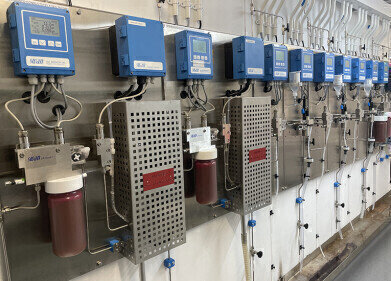Water Quality Monitoring
Post-Brexit UK water regulations to be set far below EU standards, reports Guardian
Nov 01 2023
(Note: All information presented is based on exclusive reporting by The Guardian newspaper in the UK and is relayed for informational purposes only.)
Exclusive findings by The Guardian unveil that the UK's post-Brexit water monitoring standards will significantly diverge from EU norms.
While England was an EU member, it adhered to the Water Framework directive (WFD), ensuring annual chemical and ecological river surveys. However, post-Brexit, a subtle change in the law, barely noticeably except to experts, would lead to rapid deterioration. Whilst the UK adopted the WFD into its laws, it struck the yearly test stipulation from its books. This strategic divergence from the EU's environmental standards raises eyebrows, especially given the recent leniency towards chemicals and pesticides forbidden within the EU. Data from 2019 – the last year in which comprehensive assessments were conducted – reveals alarming figures, with only 14% of English rivers being ecologically sound, and shockingly, none met good chemical health standards. Amidst the pandemic and budgetary constraints in 2022, a select few water bodies underwent assessment – and these limited evaluations depicted a decline in the quality of the assessed sites. Despite these abysmal findings, the UK government isn’t set to release another comprehensive update until 2025. While the Environment Agency recognizes water quality improvement as a priority, the comprehensive classification update for all water bodies is slated for 2025. The approach, as they affirm, will be rooted in evidence and partnerships aiming to provide a clearer picture of the situation.
Moreover, The Guardian reports that the government plans to use an undisclosed methodology to gauge river health as a replacement for pre-Brexit rules. Such a move, Stuart Singleton-White (Head of Campaigns for the Angling Trust) told The Guardian, could result in an obscuring of public understanding regarding safety and environmental health as it is likely to hinder direct comparisons with other similarly developed countries, particularly European nations: “WFD has been the bedrock of us understanding the state of our rivers, lakes and groundwater. It does not give a full picture, but it does provide a useful starting point. Past assessments have shown things are getting worse, not better. To now not have a full assessment in 2022 and have to wait to 2025 … simply sows confusion and leaves the public in the dark when it comes to properly understanding whether our rivers are getting better or worse.”
To discuss this shift in monitoring protocol, government officials recently engaged with stakeholders. An NGO representative present at these discussions expressed skepticism to The Guardian over the potential effectiveness of the proposed Natural Capital and Ecosystem Assessment (NCEA) process, and a spokesperson from the Environment Agency confirmed to the reporter the discontinuation of WFD data for future evaluations.
The Guardian is not the first organisation to sound the alarm, however. Earlier this year, the Trade and Business Commission issued a suite of recommendations to the government in the interest of boosting the British economy – one of which was ‘maintaining regulatory alignment with the EU where beneficial.’ Paul Blomfield MP, the Commission’s co-convenor, made it clear that this meant retaining the Union’s regulations on water quality. Citing instances like the post-Brexit move to discharge sewage into rivers and coasts, he stated, “Brexit shouldn’t equate to compromised environmental standards. Aligning with the EU, especially on matters as vital as clean water, is not just beneficial but essential for those who value environmental integrity over profits.”
Quoting Blomfield in a press release, the Liberal Democrats’ spokesperson for the environment, Tim Farron underscored the urgency for system overhauls and tighter regulations. Emphasizing the need for transparency and regular testing, he criticized the existing mechanisms for not addressing water pollution with the severity it deserves.
Digital Edition
AET 28.2 April/May 2024
May 2024
Business News - Teledyne Marine expands with the acquisition of Valeport - Signal partners with gas analysis experts in Korea Air Monitoring - Continuous Fine Particulate Emission Monitor...
View all digital editions
Events
Jul 30 2024 Jakarta, Indonesia
China Energy Summit & Exhibition
Jul 31 2024 Beijing, China
2024 Beijing International Coal & Mining Exhibition
Aug 07 2024 Beijing, China
IWA World Water Congress & Exhibition
Aug 11 2024 Toronto, Canada
Aug 25 2024 Stockholm, Sweden and online









.jpg)








